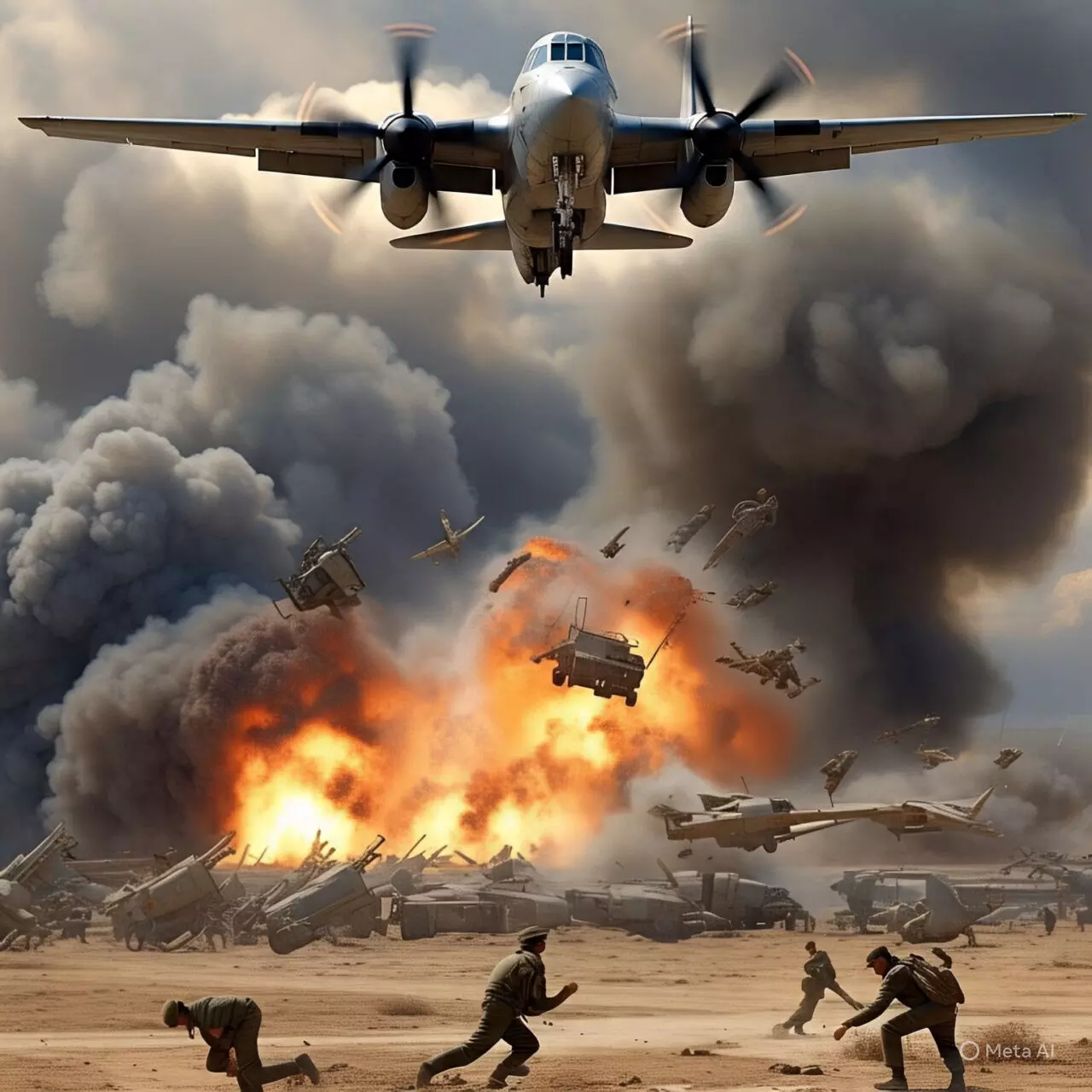US strikes on Iran : A dangerous escalation risking a wider conflict

In a significant escalation of tensions, the United States conducted precision airstrikes on Iran's nuclear facilities—Fordow, Natanz, and Isfahan—on June 21-22, 2025. This marked the first direct US military attack on Iran's nuclear program, sparking concerns of a wider conflict in the region.
The airstrikes come amidst longstanding concerns over Iran's nuclear ambitions, with the US and its allies fearing that Tehran's program could lead to the development of nuclear weapons. Despite Iran's claims that its nuclear program is for peaceful purposes, the international community remains skeptical.
So, what prompted the US to take military action now? Analysts point to a combination of factors, including Iran's growing nuclear capabilities, its support for proxy militias in the region, and the breakdown of diplomatic efforts to curb its nuclear program.
*A Complex Web of Interests*
The Middle East is a complex and volatile region, with multiple actors vying for influence. The US airstrikes on Iran have the potential to upset this delicate balance of power, with far-reaching consequences.
Iran's nuclear program has long been a source of concern for its regional rivals, including Israel and Saudi Arabia. A nuclear-armed Iran would dramatically alter the balance of power in the region, threatening the interests of these countries.
At the same time, Iran's support for proxy militias in Lebanon, Iraq, Yemen, Syria, and Gaza has raised concerns among Western powers. A nuclear Iran would likely feel emboldened to continue its support for these groups, potentially destabilizing the region further.
*Diplomatic Fallout*
The US airstrikes on Iran have significant implications for diplomatic efforts to resolve the crisis. The breakdown of the Joint Comprehensive Plan of Action (JCPOA), also known as the Iran nuclear deal, has left a vacuum that has yet to be filled.
The international community is bracing for a potential escalation of tensions, with Iran threatening to retaliate against US assets in the region. As the situation continues to unfold, one thing is clear: the Middle East is poised on the brink of a wider conflict, with far-reaching consequences for regional and global stability.
*What's Next?*
As the dust settles, attention turns to the next steps in this unfolding crisis. Will Iran retaliate against US assets in the region? How will regional actors respond to this new reality?
One thing is certain: the US airstrikes on Iran have marked a significant turning point in the region. As the international community struggles to come to terms with this new reality, the people of the Middle East hold their breath, waiting to see what the future holds.
These strikes today has atleast for now dented the radical militias from going offensive to a defensive mode. Next few hours and days will be critical for regional peace in Middle East and its to been seen whether Iran will retaliate with strikes on US assets in the region. Dangerous escalation will keep the regional stability on edge with Iran at the central axis.
